CONFIRMED INVITED SPEAKERS
New developments in genetic and acquired disorders of the neuromuscular junction
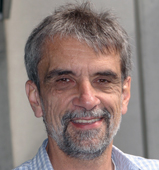
Markus Ruegg , University of Basel, Switzerland.
Mechanisms of neuromuscular junction maintenanceMarkus Ruegg is a Professor at the Biozentrum, University of Basel. His research interests include the molecular mechanisms of neuromuscular junction development and maintenance, signaling pathways regulating muscle size and aging, and preclinical testing of novel treatment options in mouse models for MDC1A/LAMA2 congenital muscular dystrophy.
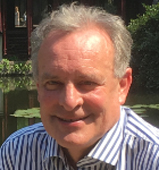
David Beeson, NDCN University of Oxford, UK.
Molecular mechanisms and therapy for inherited disorders of the neuromuscular junctionDavid Beeson graduated from Magdalene College, Cambridge, did his PhD at Imperial College, London. He moved to the then Institute of Molecular Medicine, at the University of Oxford, to work on disorders of neuromuscular transmission in 1988. He was made Professor of Neuroscience in 2004 and recently was elected Fellow of the Academy of Medical Sciences.
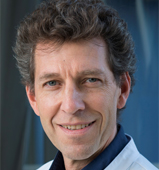
Jan Verschuuren, Leiden University Medical Centre, The Netherlands.
From trial-and-error to trials without errors in MGJan Verschuuren is an neurologist and Professor of Neuromuscular Diseases at Leiden University Medical Center. He obtained his PhD on experimental autoimmune myasthenia gravis, worked as a postdoc at Memorial Sloan-Kettering Cancer Center and is currently head of the department of Neurology at LUMC. His research interests include neuromuscular junction disorders and muscular dystrophies.
Mitochondrial function and dysfunction in neuromuscular disorders: pathogenesis and therapies
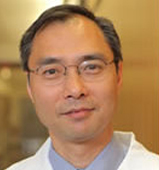
Michio Hirano, Columbia University, USA.
Dr Michio Hirano is a Professor of Neurology and Chief of the Neuromuscular Medicine Division at Columbia University Medical Center (CUMC). After completing his neurology residency at CUMC, he did a neuromuscular genetics fellowship under Drs. Billi DiMauro and Eric Schon. Dr. Hirano’s laboratory studies genetic myopathies focusing on mitochondrial diseases.
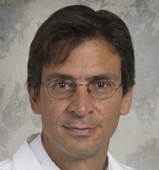
Carlos Moraes, University of Miami, USA.
Professor Moraes obtained his Ph.D. from Columbia University working with the groups of Drs. DiMauro and Schon. He established an independent group at the University of Miami, where he focused on developing treatments for mitochondrial diseases. More recently he has adapted the use of DNA editing enzymes to eliminate mutant mtDNA.
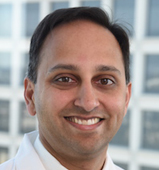
Prashant Mishra, Children’s Medical Center Research Institute, UT Southwestern, Dallas, USA.
Skeletal Muscle Manifestations in Mitochondrial DiseaseDr. Mishra is an assistant professor in the Children’s Research Institute and Department of Pediatrics at the University of Texas Southwestern Medical Center (Dallas, TX). Using animal models and patient samples, his laboratory studies how mitochondrial physiology and dynamics differ during disease.
Experimental therapy of mitochondrial disorders
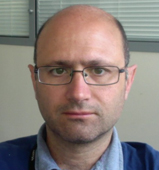
Carlo Viscomi MRC Mitochondrial Biology Unit, Cambridge, UK
Experimental therapy of mitochondrial disordersDr Carlo Viscomi is Senior Scientist at the University of Cambridge/MRC Mitochondrial Biology Unit, Cambridge, UK. He is interested in investigating the pathogenic mechanisms of mitochondrial diseases, and in the development of new therapeutic approaches.
Advances in the treatment of neuromuscular disorders
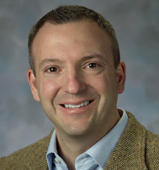
Scott Harper, Nationwide Children's Hospital, Ohio, USA
Emerging therapeutic approaches for Facioscapulohumeral muscular dystrophy (FSHD)Dr. Harper is a molecular biologist who has spent his career working to develop gene therapy approaches for muscular dystrophies and neurodegenerative diseases, including DMD, Huntington’s Disease, and for the last decade with a primary focus on Facioscapulohumeral muscular dystrophy (FSHD). Dr. Harper was selected as the Outstanding New Investigator by the American Society of Gene and Cell Therapy in 2014.
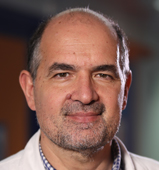
Eugenio Mercuri, Catholic University, Rome, Italy.
Treatment of Duchenne Dystrophy: current efforts, bottlenecks and future prospects.Dr Mercuri earned his medical degree from Messina University Medical School in Messina, Italy, where he subsequently completed a specialization course in child neurology and psychiatry. Dr Mercuri also holds a PhD degree in developmental neurosciences. He joined Catholic University and Policlinico Gemelli, both in Rome, Italy, in 2002.

